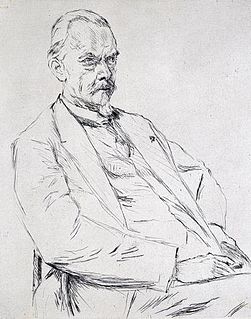| Cinema of the Netherlands |
|---|
 |
| List of Dutch films |
This is chronology of films produced in the Netherlands . The films are produced in the Dutch language.
| Cinema of the Netherlands |
|---|
 |
| List of Dutch films |
This is chronology of films produced in the Netherlands . The films are produced in the Dutch language.

Alfred Henry "Freddy" Heineken was a Dutch businessman for Heineken International, the brewing company bought in 1864 by his grandfather Gerard Adriaan Heineken in Amsterdam. He served as chairman of the board of directors and CEO from 1971 until 1989. After his retirement as chairman and CEO, Heineken continued to sit on the board of directors until his death and served as chairman of the supervisory board from 1989 till 1995. At the time of his death, Heineken was one of the richest people in the Netherlands, with a net worth of 9.5 billion guilders.

The Netherlands, informally Holland, is a country located in Northwestern Europe with overseas territories in the Caribbean. It is the largest of four constituent countries of the Kingdom of the Netherlands. The Netherlands consists of twelve provinces; it borders Germany to the east, Belgium to the south, with a North Sea coastline to the north and west. It shares maritime borders with the United Kingdom, Germany and Belgium in the North Sea. The country's official language is Dutch, with West Frisian as a secondary official language in the province of Friesland. Dutch Low Saxon and Limburgish are recognised regional languages, while Dutch Sign Language, Sinte Romani and Yiddish are recognised non-territorial languages. Dutch, English and Papiamento are official in the Caribbean territories.

Albert Heijn is the largest supermarket chain in the Netherlands with a market share of 34.8% in 2020. It was founded in 1887, and has been part of Ahold Delhaize since 2016.

The Nederlandse Omroep Stichting is one of the broadcasting organisations making up the Netherlands Public Broadcasting system. It has a special statutory obligation to make news and sports programmes for the three Dutch public television channels and the Dutch public radio services. It is funded by the Dutch government.

The Netherlands national cricket team is the men's team that represents the Kingdom of the Netherlands and is administered by the Royal Dutch Cricket Association.

Cinema of the Netherlands refers to the film industry based in the Netherlands. Because the Dutch film industry is relatively small, and there is little or no international market for Dutch films, almost all films rely on state funding. This funding can be achieved through several sources, for instance through the Netherlands Film Fund or the public broadcast networks. In recent years the Dutch Government has established several tax shelters for private investments in Dutch films.

Soldier of Orange is a 1977 Dutch romance-thriller film directed and co-written by Paul Verhoeven and produced by Rob Houwer, starring Rutger Hauer and Jeroen Krabbé. The film is set around the German occupation of the Netherlands during World War II, and shows how individual students have different roles in the war. The story is based on the autobiographical book Soldaat van Oranje by Erik Hazelhoff Roelfzema.

The FN Model 1910 is a blowback-operated, semi-automatic pistol designed by John Browning and manufactured by Fabrique Nationale of Belgium.

The Misadventure of a French Gentleman Without Pants at the Zandvoort Beach is a 1905 early Dutch silent film directed by Willy Mullens, and produced by Alberts Frères. A six-minute short comedy film, it is one of the oldest surviving Dutch fictional films. When the Netherlands Film Festival presented its canon of Dutch cinema in 2007, it included this film.

The Dutch East Indies, also known as the Netherlands East-Indies was a Dutch colony consisting of what is now Indonesia. It was formed from the nationalised trading posts of the Dutch East India Company, which came under the administration of the Dutch government in 1800.

Frederick (Frits) Koolhoven was an aircraft designer in Britain and his native Netherlands.

Cornelis Hofstede de Groot, was a Dutch art collector, art historian and museum curator.

Gestoorde hengelaar was the first Dutch fictional film, made by M.H. Laddé in 1896 and was produced by the studio Eerst Nederlandsch Atelier tot het vervaardigen van Films voor de Bioscoop en Cinematograaf van M.H. Laddé en J.W. Merkelbach.

Solser en Hesse were two short Dutch silent films by M.H. Laddé and J.W. Merkelbach from 1900 and 1906, respectively, featuring the comedians Lion Solser and Piet Hesse. Both running for 1 “act”, the first film was distributed by Edison’s Ideal in 35mm film. In 1906, a sequel film was commissioned by The Royal Bioscope for release of July 1, 1906. It was produced by F.A. Nöggerath Senior at Filmfabriek F.A. Nöggerath. It was also important, in that it made use of Sound On-Disk. Both films are lost, no copies or visual media of the films are known to exist in the EYE film institute archives in the Netherlands.
Dutch Mexicans are Mexican citizens of Dutch descent.